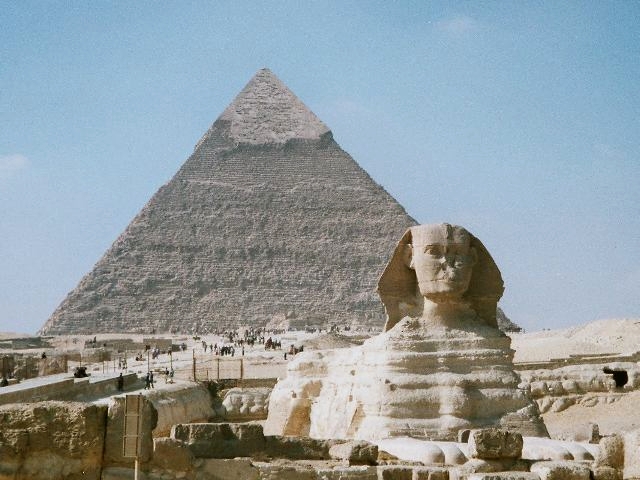Ancient Egyptian culture
 4:01 AM
4:01 AM
 wahyu
wahyu
 Ancient Egypt is an ancient civilization in northeastern Africa. This civilization centered along the mid to lower reaches of the Nile which glory in about 2nd century BC, during the period known as the New Kingdom. The region covers an area north of the Nile Delta, to Jebel Barkal at the Fourth Cataract of the Nile. At some particular time, Egyptian civilization extended to the southern Levant, the Eastern Desert, Red Sea coast, the Sinai Peninsula, and the Western Desert (focused on several oases).
Ancient Egypt is an ancient civilization in northeastern Africa. This civilization centered along the mid to lower reaches of the Nile which glory in about 2nd century BC, during the period known as the New Kingdom. The region covers an area north of the Nile Delta, to Jebel Barkal at the Fourth Cataract of the Nile. At some particular time, Egyptian civilization extended to the southern Levant, the Eastern Desert, Red Sea coast, the Sinai Peninsula, and the Western Desert (focused on several oases). Ancient Egyptian civilization developed for about three and a half centuries. Beginning with the early unification groups in the Nile Valley around 3150 BC, this civilization is traditionally considered an end in about 31 BC, during the early Roman Empire conquered and absorbed Ptolemi Egyptian territory as part of the Roman province. Although this is not the first foreign occupation of Egypt, the period of Roman rule led to a political and religious changes gradually in the Nile Valley, which effectively marked the end of the development of an independent Egyptian civilization.
Ancient Egyptian civilization is based on a good balance of control between natural resources and human beings, characterized mainly by
* Regular irrigation of the Nile Valley;
* The exploitation of minerals from the valley and surrounding desert regions;
* The early development of writing and literature system independent;
* Organization of collective projects;
* Trade with the east African region and central and eastern Mediterranean; and
* The military activity that showed a strong characteristic of royal hegemony and cultural domination of neighboring regions in several different periods.
Management of these activities conducted by the social elite, political, economic and social consensus achieved through a complex system based on religious beliefs under a semi-divine authority figures (semi-divine), which is usually a man, through a succession of ruling dynasties, known by the world at large as a polytheistic beliefs. Formerly flooded valley of the Nile, the valley looks far more fertile than the surrounding desert.
The most remarkable legacy is: pyramids and sphinx
(source)


 Posted in
Posted in

0 Response to "Ancient Egyptian culture"
Post a Comment